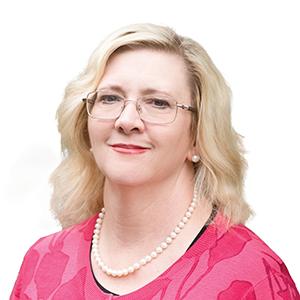During Nurses Week, May 6 to 12, we honor the lifesaving, life-enhancing work done by all nurses. Today we highlight the achievements of four City of Hope nurses — two who garnered major awards for their contributions to cancer care and two who presented their innovative programs at this year’s Oncology Nursing Society (ONS) Conference.
Betty Ferrell – Lifetime Achievement Award
For more than 40 years, Betty Ferrell, Ph.D., M.S.N., CHPN, has dedicated her career to reducing pain and improving the quality of life for cancer patients, and her achievements in research and practice have made a major impact on patient care around the world.
This year Ferrell, director of the Division of Nursing Research and Education in the Department of Population Sciences at City of Hope, was awarded the ONS Lifetime Achievement Award.
Ferrell still remembers the patient she met at the very start of her career whose struggle determined the course her career would take. He was a frail and vulnerable man in such great pain he could barely speak. He asked her, desperately but without any anger, if there was anything she could do to help. It was then that she knew what her calling was — finding better ways to help patients in pain.
In presenting the award this April at the 2021 ONS Congress, ONS President Nancy Houlihan, M.A., R.N., AOCN, called Ferrell “a nursing legend,” and made this powerful statement:
“Betty Ferrell’s career-long contributions to palliative care and cancer survivorship are ingrained in the core of oncology nursing practice. Her “influence has improved the quality of life for millions with cancer across the globe.”
Ferrell, a nurse and scientist, has received more than $70 million in grant funding as principal investigator on numerous studies that have led to improvements in patient care. One of her most significant achievements is as founder and leader of the End-of-Life Nursing Education Consortium (ELNEC), a program focused on palliative and end-of-life care that has trained more than 1 million nurses in all 50 states and in 100 countries worldwide.
“I am so honored to receive this award from ONS,” Ferrell said. “It has been a great privilege to be a part of oncology nursing for the past 44 years and to witness the role of nursing in improving care for patients and families.”
Elisabeth King – CBCN Nurse of the Year
Elisabeth King, R.N., AGN, AOCNP, FNP, has been named Certified Breast Care Nurse (CBCN) of the Year, an award presented by the Oncology Nursing Certification Corporation.
King, the executive director of genomics and precision medicine at City of Hope, has played a significant role in genetic innovations that have had great impact on treatment and outcomes for breast cancer patients.
She established a same-day genomic testing program for breast cancer patients who are in urgent need of the results to aid in treatment decisions. She also helped develop genetic risk assessment services for patients with a family history of breast cancer.
In 2020, King was a leader in instituting changes to deal with the impact of the COVID-19 pandemic on City of Hope patients. She played a key role in the transition to telehealth services and helped set up quick and efficient drive-thru Covid testing on the Duarte campus.
King also serves on several professional advisory boards, has been published in many journals and frequently gives lectures on cancer genomics.
“I am honored and humbled to be recognized for excellence in oncology nursing,” she said. “I am part of a team of nurses at City of Hope who are dedicated to providing compassionate cancer care that yields improved patient outcomes. I and my fellow nurses at City of Hope are sensitive to patients’ needs and provide them with quality, safe and innovative cancer care.”
Kimberly Mercado — Walking Program
When Kimberly Mercado, M.S.N., R.N., BMTCN, and her City of Hope colleagues noticed a significant decrease in the number of steps walked by their blood cancer patients — and a corresponding increase in falls — they created a program that has dramatically helped.
As she said in her presentation at the ONS conference: “We really wanted to give them a program that would help them to get motivated to exercise on the unit and kind of get out of their rooms, and keep up their stamina while they're receiving this treatment. Because as we all know, these treatments can be quite debilitating.”
Motivation, she explained, was key, especially during the COVID-19 pandemic. With visitor restrictions, patients needed something to look forward to during the day.
To get patients involved, Mercado and her colleagues gave out brochures explaining the program, hung motivational posters and created foot-shaped charms that patients can earn by walking and could hang from their IV poles.
Thanks to these efforts, after one month, the average number of steps patients walked rose from 136 to 1,018 per day. What’s more, patients are really enjoying their walks.
Leana Chien – Telehealth Intervention
Leana Cabrera Chien, M.S.N., R.N., GCNS-BC, GNP-BC, a geriatric nurse practitioner, and her City of Hope team developed a telehealth assessment tool specially geared toward older adults.
Using electronic medical records, the tool uses data that includes patients’ function status, comorbidities, polypharmacy, cognition, nutrition and social support to create a plan of care tailored to the unique needs of each patient, Chien explained in her ONS Congress presentation.
A study to compare this telehealth tool with usual clinical care was launched in September 2019. This was just months before the global pandemic made telehealth services especially important for older patients, who are at elevated risk for severe symptoms from COVID-19.
The study ended in February 2021, and though the final results are not yet completed, they anticipate there will be no difference in care between traditional and telehealth groups.
For many older patients, such as those who may be hampered by such issues as transportation, this tool promises to be an effective way to maintain a high standard of care.


